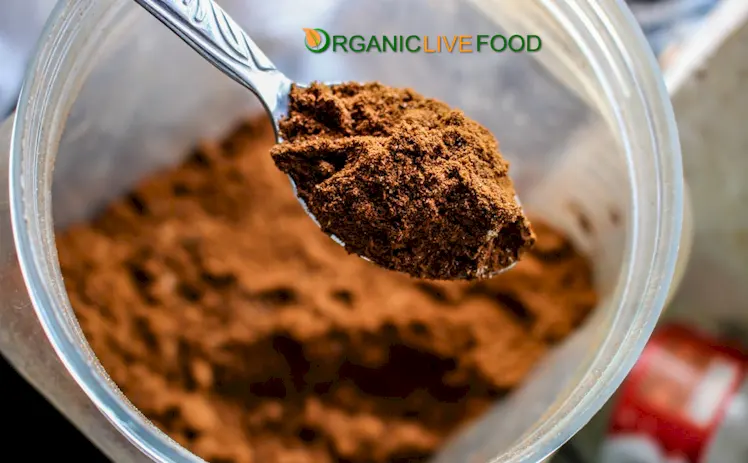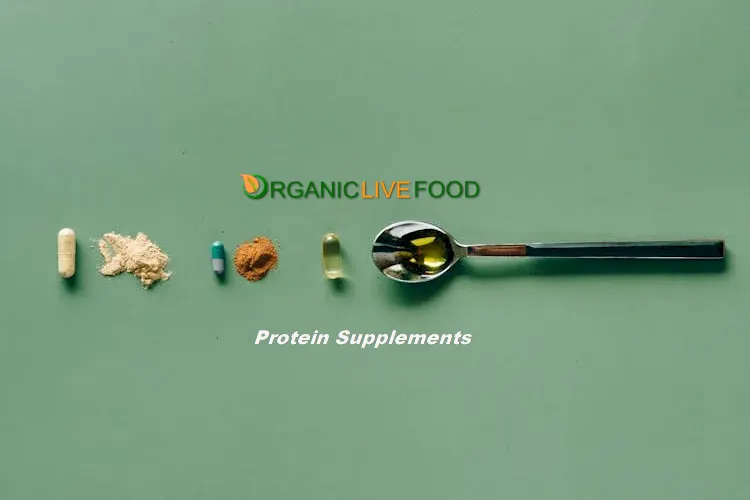Protein supplements have gained popularity in recent years as quick and convenient sources of protein. However, the latest medica research guidelines highlight concerns regarding their widespread use. The guidelines suggests that reliance on supplements may not be necessary for most individuals, as a well-balanced diet can typically provide adequate protein intake.
The latest research supports this stance, indicating that excessive reliance on supplements may not offer additional health benefits and could even lead to potential risks. For example, some studies have linked high intake of protein supplements with kidney damage, digestive issues, and an increased risk of certain chronic diseases.

Latest medical research guidelines emphasizes the importance of obtaining protein from natural food sources such as pulses, legumes, dairy products, lean meats, and nuts.
These whole food sources not only provide protein but also offer essential nutrients, fiber, and antioxidants crucial for overall health and well-being.
The study shows that, a diverse diet that includes a variety of protein-rich foods ensures a balanced intake of amino acids, the building blocks of protein, which is essential for supporting bodily functions and maintaining muscle mass.
Protein plays a fundamental role in supporting various aspects of health and nutrition. It is essential for muscle growth, repair, and maintenance.
During physical activity or exercise, muscle tissues undergo microscopic damage, and protein provides the necessary amino acids to repair and rebuild these tissues, leading to muscle growth and strength development.
Adequate protein intake is particularly important for athletes, individuals engaged in resistance training, and older adults to preserve muscle mass and function.
Implementing these dietary guidelines requires a multifaceted approach involving policymakers, healthcare professionals, food manufacturers, and consumers.
Protein is crucial for supporting immune function. Many components of the immune system, such as antibodies and immune cells, are made up of proteins. Consuming sufficient protein ensures the body has the building blocks needed to produce these vital immune components, thereby helping to defend against infections, viruses, and other pathogens.
Government initiatives to promote healthy eating habits, public education campaigns about the risks of excessive protein supplement consumption and reliance on synthetic protein supplements, and labeling regulations for packaged foods can all play vital roles in shaping dietary behavior.
The latest dietary guidelines underscore the importance of reevaluating dietary habits to prioritize whole food sources of protein and reduce reliance on supplements for better health outcomes. By embracing these recommendations and making informed choices about food consumption, individuals can take proactive steps towards improving their overall health and well-being.
Obtaining protein from natural food sources is crucial for maintaining optimal health and supporting various bodily functions.
Natural sources of protein, such as lean meats, poultry, fish, eggs, dairy products, legumes, nuts, and seeds, provide not only protein but also essential nutrients vital for overall well-being.
These foods offer a complete package of amino acids, the building blocks of protein, ensuring that the body receives the necessary nutrients for muscle repair, growth, and maintenance.
Natural protein sources often come with additional health benefits beyond just protein content. For example, lean meats and fish are rich in vitamins and minerals like iron, zinc, and B vitamins, which are essential for energy production, immune function, and cognitive health.
Similarly, dairy products provide calcium for bone health and vitamin D for optimal calcium absorption. Including a variety of natural protein sources in the diet ensures a well-rounded nutrient intake that supports overall health and vitality.
It is important to remember that, consuming protein from natural sources promotes satiety and helps regulate appetite, making it easier to maintain a healthy weight. Whole foods like legumes, nuts, and seeds are not only rich in protein but also high in fiber, which promotes feelings of fullness and aids in digestion.
Protein plays a key role in regulating appetite and promoting weight management. High-protein foods have been shown to increase feelings of fullness and satiety, leading to reduced calorie intake and improved weight loss outcomes.
Protein-rich diets also help preserve lean body mass during weight loss, preventing muscle loss and promoting fat loss. As a result, adequate protein intake is associated with better weight management, metabolic health, and reduced risk of obesity-related diseases such as type 2 diabetes and cardiovascular disease.
By prioritizing natural protein sources over processed alternatives, individuals can better manage their calorie intake, improve metabolic health, and reduce the risk of obesity and related chronic diseases.

Nutrition and weight management are essential for ensuring optimal health, vitality, and overall well-being.
Each individual's dietary needs vary based on factors such as age, gender, activity level, and health status.
Various weight loss plans, including the Atkins diet, ketogenic diet, paleo diet, Mediterranean diet, intermittent fasting (such as 12:12 and 16:8), and tailored diets for specific demographics like women, seniors, and children, offer different approaches to achieving weight loss and promoting health.
Additionally, incorporating fresh, organic meal kits into one's routine can simplify meal preparation and ensure access to nutritious foods while supporting weight loss goals.
These approaches emphasize the importance of balanced nutrition, anti-inflammation, mindful eating, and sustainable lifestyle habits to support long-term health and vitality.
Here are some of the main questions people have about weight management:
2. What is the best diet for weight loss?
3. How many calories should I eat to lose weight?
4. What are the most effective exercises for weight loss?
5. What foods should I avoid when trying to lose weight?
6. What is the ketogenic diet and does it work for weight loss?
8. Are there any weight loss supplements that actually work?
9. What are some healthy meal prep ideas for weight loss?
10. How can I stay motivated to lose weight?
11. What is 'Precision Nutrition' and does it work or help to lose weight?
OrganicLiveFood.com community is dedicated to our wonderful members who are making small subtle changes to their eating habits each day in order to be more healthy and active and have a vibrant lifestyle. Eating healthy food is not a chore nor is it tasteless. Throw together a lovely salad with strawberries, blueberries, walnuts, sesame seeds and nice fresh leafy lettuce and then ask yourself if you still want boring French fries.
Imagine if you could have highly nutritious food every day that would help to boost your energy level and reduce fat in your body. Superfoods are highly efficient for lowering the cholesterol level, reducing heart disease, diabetes and cancer, while giving your energy and amazing nutrients.
We have divided superfoods into 5 categories of green superfoods, seaweed superfoods, herb superfoods, bee superfoods, fruit and nut superfoods. There are also other superfoods such as cacao beans, avocado, tea and omega 3-rich wild fish.